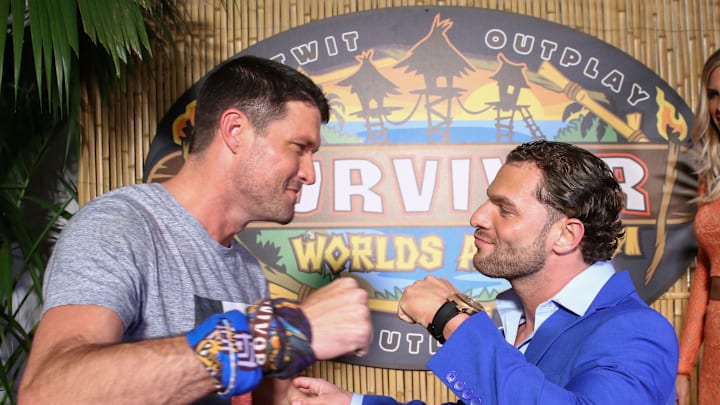Survivor 30, otherwise known as Worlds Apart, featured the interesting theme of White Collar vs. Blue Collar vs. No Collar. The season focused on the perceived differences in work ethic and lifestyle and how those attitudes might play out on Survivor.
For most of the game, the blue collar tribe held the tenuous power, as they stuck together the longest, and eventually, Mike Holloway won, from the blue collar contingent.
READ MORE: Ranking Survivor's New Era Seasons
What were the diversity issues with Survivor 30?
Out of the 18 contestants, only two were people of color. So Kim, who was the first player voted of during season, and Will Sims II, who made it to the final three and received one vote - that's it.
So was part of the White Collar team and Will was part of the No Collar group. There were no people of color on the Blue Collar team.
This, of course, is just one season, but Survivor was never known as having many people of color on their casts. Season 28 featured five people of color, but season 26 only had four people of color out of a cast of 20. You see the point. There seemed to always seemed to be a disproportionate numbers of white people on the casts.
Luckily, after 40 seasons, Survivor finally realized they were not serving the fans, or the players, or the game itself in the best way possible. During the disruption caused by COVID across the world, the showrunners took a hard look at what they had been doing for so long.
According to Martin Holmes on Inside Survivor in late 2020, the show set goals to have at least 50 percent of all players be Black, Indigenous, and People of Color. They've held to that goal through the first six seasons since returning with season 41.
The results have been great. Although the post-COVID Survivor is using several significant rule changes, primary among those is a 26-day game rather than 39-days, the diverse casts breathed new life into the game.
It was a key missing ingredient and has helped the game evolve. Yes, it was something that should have been been addressed long before it was, and in seasons like Worlds Apart, is was glaringly obvious.
It is easy to look back in hindsight and see issues. That said, when season 30 aired initially in the spring of 2015, most diehard fans will have noticed the lack of diversity in that particular season, and knowing it was an issue historically with the show.
Watching some of these seasons now, those issues are even more glaringly apparent, and the game suffered for it in many instances. Thankfully, Survivor fixed the issue, but to be frank, it took way too long to do so, and fans should have been more vocal about it over the years and the show should have been more proactive.
• Jeff Probst shares exciting cast update for Survivor 50
• Survivor 30 provided the most toothless villain in the show's history
• Australian Survivor's Nina Twine, Daughter of Sandra, is Back on Reality TV
